A Dram with Neil Mathieson
Having rattled around the back bar of spirits, with a particular fondness for Cognac and American craft whiskeys, Neil Mathieson began to focus on Scotch. Ian Fraser caught up with this most enlightened of whisky bosses to hear more …
Neil Mathieson, founder, chief whisky maker and CEO of Mossburn Distillers, is convinced that premiumisation is here to stay. Over a metaphorical dram, Mathieson, 62, went as far as to thank Diageo for everything it has achieved in this area. "Anyone who can take the price of basic Lagavulin to the heights they have, and enable people like us to build a distillery on Skye and make some money deserves our gratitude."
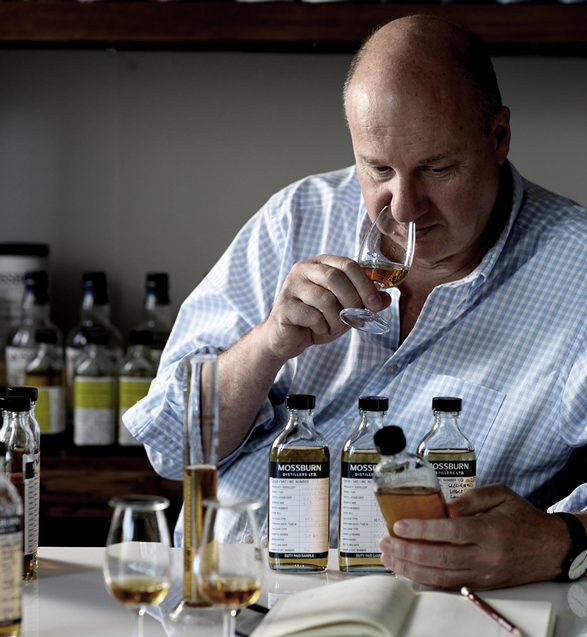
Mathieson is the driving force behind the first legal malt distillery to open on the Isle of Skye since Talisker was founded in 1830. Torabhaig, built in a converted farm-steading on the picturesque Sleat peninsula, opened in January 2017.
It was Sir Iain Noble, founder of Noble Grossart and the Gaelic Whisky co. Pràban Na Linne , who chose the site and obtained planning permission. Sadly, he died in 2010 before turf had been cut, and it was Mathieson's company that turned Noble's dream into reality. It has named two of the stills 'Sir Iain' and 'Lady Lucilla' in honour of him and his widow, who was a Torabhaig Distillery director in 2013-19. .
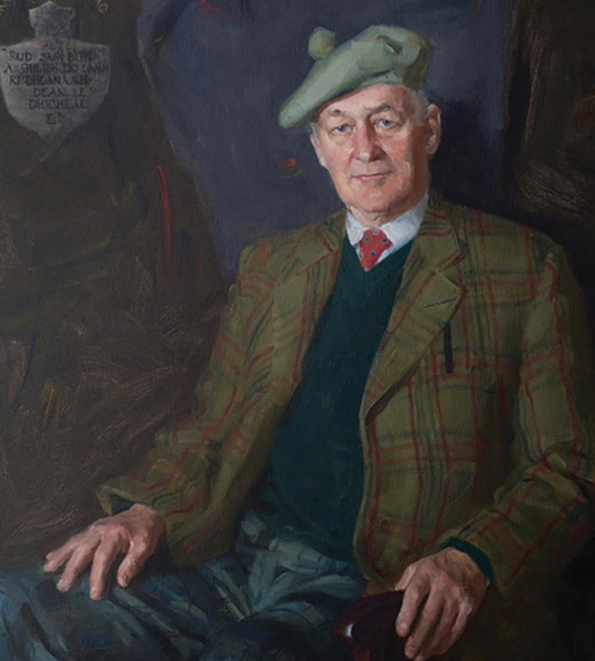
There are echoes of the 'Toyota Way' – whereby workers at the Japanese car company are empowered and encouraged to bring new ideas to the production process – in the working practises Mossburn introduced at the distillery. Each of the nine distillers, none of whom had previous distilling experience, is entrusted to make their own whisky – The Journeyman's Dram, for one month a year. The group evaluates the merits of each to bring incremental improvements to the manufacture of the peated Torabhaig.
Mathieson was a late convert to Scotch, having begun his career in Cognac, Armagnac and Calvados. Having studied management, economics and statistics at Middlesex Polytechnic, he says: "I didn't fancy working in law, accountancy or management." Instead, he tested the strength of the 'Auld Alliance' by approaching a number of Cognac houses, and was delighted to be offered unpaid internships with several. "I went down and mucked about with some fairly solid companies, learning about distillation, production and blending. I was lucky to be introduced to the craft distilling world 25 years before the craft world really existed."
Several of the luminaries he worked alongside went on to become mentors. "Louis Nomdedeu, a stalwart of Cognac production, was a gent. If you remember the impeccable manner and patience of John Ramsay, master blender at Edrington, Louis was from the same mould. Henri Krug, former Krug Champagne director, taught me a lot about blending. They both gave their time and knowledge – something we wish to see continue with our 'outreach' model at Mossburn."
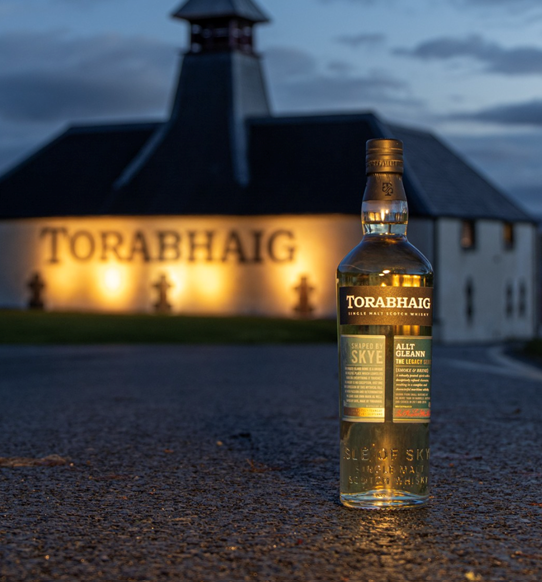
Returning to the UK aged 22, Mathieson established his own import business, Eaux de Vie, with the intention of importing Cognac and other upmarket drinks from smaller producers which lacked international clout or branding nous.
Over the next 25 years, Mathieson developed a network of agencies that included everything from R.L Seale's Barbados rum to Heaven Hill bourbon and the Speyside single malt – Glenfarclas. Eaux de Vie became the first UK player to seek out and import US craft whiskeys, and in 1992 into a substantial import business, The company, which expanded into owning barrels and became an independent bottler in 1992.
By the mid-2000s, it had reached a size where it was "butting heads against the bigger companies," says Mathieson. He realised it would either have to reduce volumes or commence production. Around that time, he entered talks with Marussia Beverages and its principal – the Swedish-born pharmaceuticals tycoon and polar explorer Frederik Paulsen Jr. who's personal wealth is estimated at $7.6 billion. "They asked if they could join us and, in the end, we did. That was in 2010."
Mathieson says "Marussia Beverages today has 15 or 16 active entities, of which roughly half are in distribution and half in production" adding the company has significantly different business mixes in each country in which it operates." He said the privately-held group is "currently based out of Austria but has its head office in Geneva"
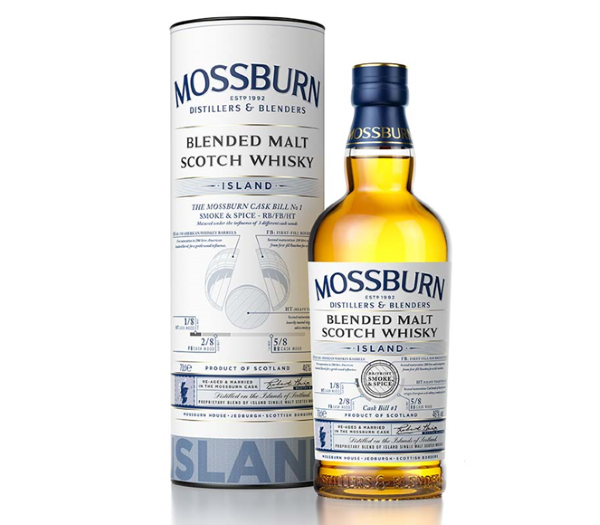
Mossburn Distillers, founded in 2012 to handle Eaux de Vie's whisky interests, has been a subsidiary of Marussia from the start. Today, the Switzerland-based group is understood to be financing its second distillery, a single grain facility in the Scottish borders. Though loss-making in the year to 31 December 2022, Mossburn had net current assets of £24.6 million and stock of £14.8m as of that date, according to filings at Companies House.
Mathieson says Mossburn Distillers, which launched the heavily peated blended malt Caisteal Chamuis in 2021, "doesn't really consider itself to be a 'craft distiller', along the lines of the 'new wave' of Scandinavian craft players, saying instead "we have more of an association with the Americans".
He says Mossburn has been experimenting with a range of grains and production techniques at its Reivers innovation hub in Tweedbank in the Borders, and does not believe that either SWA or the UK government's Spirit Drinks Verification Scheme is cramping its style.
The next challenge for Mathieson is to realise a £40m plan, that was delayed by Brexit, Covid and the discovery of archaeological remains, for the construction of two grain distilleries, a bottling hall, warehouses, offices, visitor centre and 200-seat restaurant. It is on the site of the former Jedforest Hotel near Jedburgh, where Reivers will relocate to once completed.
Mathieson is optimistic about the future of Scotch. "I would say the interest levels are still high and people are looking for more. What will probably happen though, is there will be fewer outrageous packages, it will become harder for people to get into the industry at a very small scale, and it won't be possible to produce so many variations on a theme and sell them at such high prices."
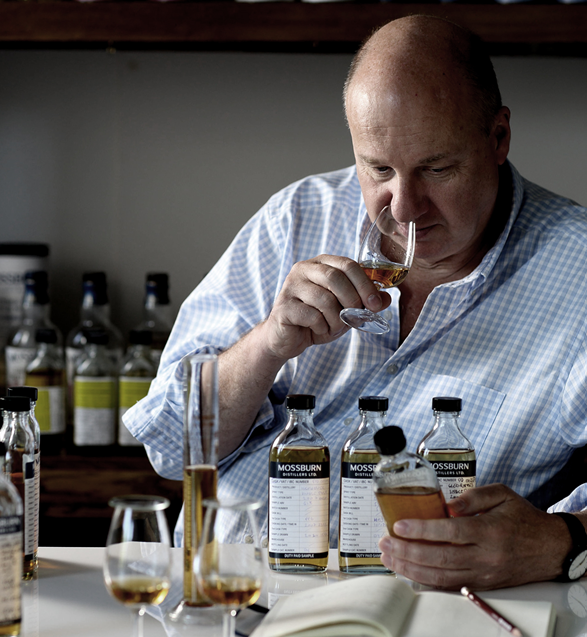
Ian Fraser is a financial journalist, a former business editor of Sunday Times Scotland, and author of Shredded: Inside RBS The Bank That Broke Britain.




